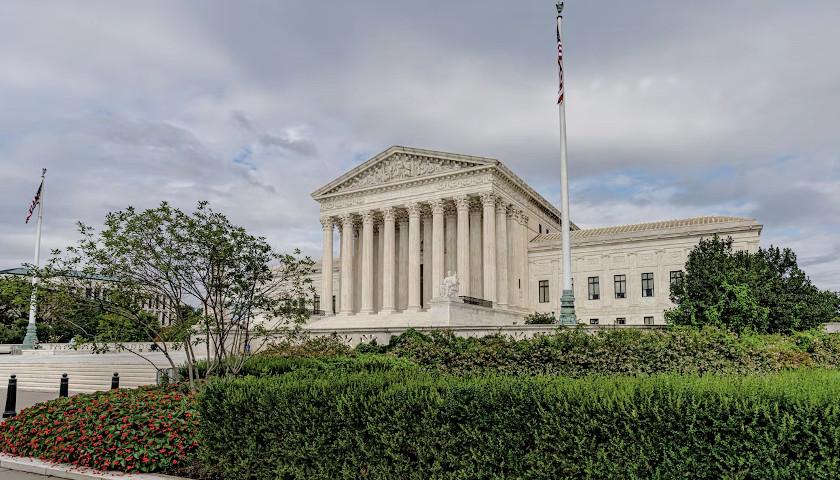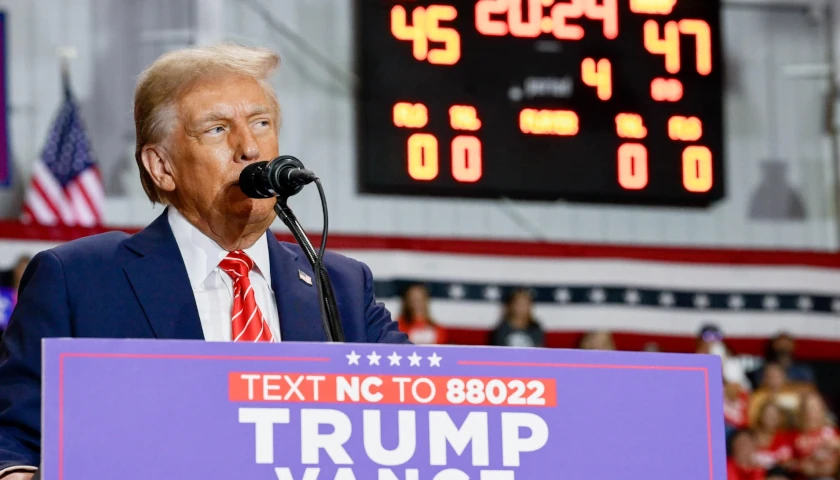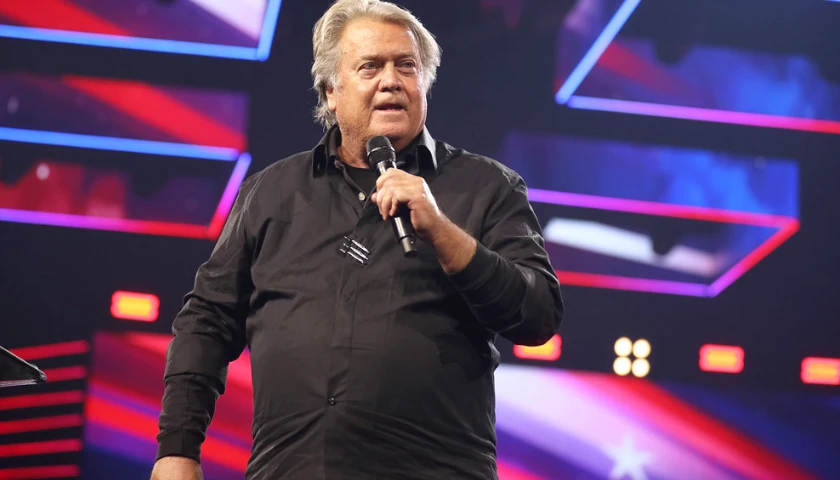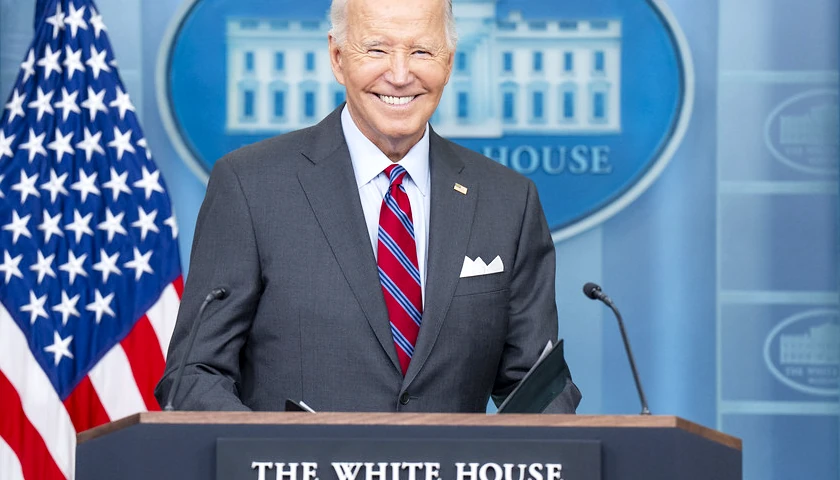Mike Benz, former Trump State Department official and current executive director of the Foundation for Freedom Online, said the Supreme Court is going to have to exercise “bravery” as opposed to “wisdom” in its ruling of Murthy v. Missouri for the government censorship complex to be dismantled.
Murthy v. Missouri seeks to determine whether the government’s “challenged conduct transformed private social media companies’ content-moderation decisions into state action and violated respondents’ First Amendment rights” related to COVID-19 and the 2020 presidential election.
The Supreme Court heard oral arguments in the case on Monday.
On Wednesday’s edition of The Michael Patrick Leahy Show, host Michael Patrick Leahy noted how the plaintiff’s arguments on Monday didn’t seem to go well “for the home team,” which led Benz to point out the recent landmark decisions made by the Supreme Court, arguing that if the court was to do a “bold, big, brave decision,” the justices would “want to show that they were even handed and forceful in interrogating and probing the plaintiff’s side.”
“It’s one of these things where the most important trait that the Supreme Court is going to have to exercise in this case is not so much wisdom as it is bravery. In order to dismantle the government censorship complex here, it’s going to take a stroke of the pen for the ultimate decision here that is going to be deeply unsettling to the federal government if the Supreme Court actually goes through with what, for example, the trial court went through,” Benz explained.
Benz went on to cite three cases in particular this year that the Supreme Court has acted on and “shown tremendous bravery.”
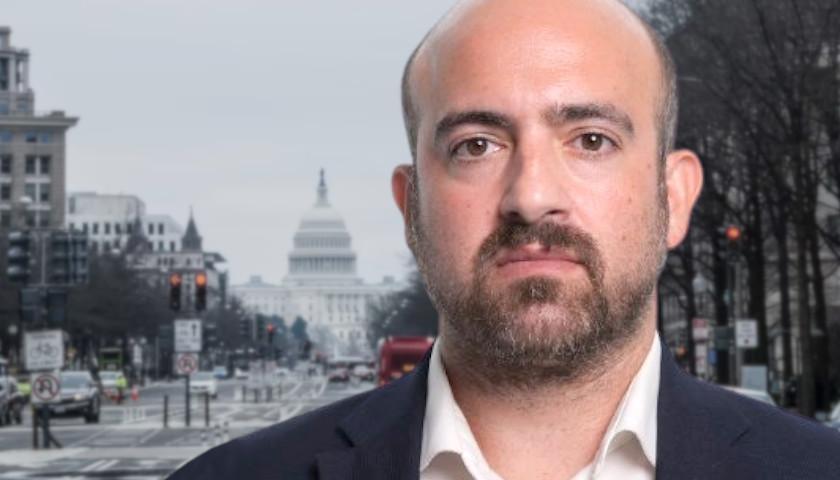
Mike Benz / X
“We have seen, on the sort of positive side, several cases this year alone where the Supreme Court has acted and has shown tremendous bravery,” Benz said. “They struck down Grutter v. Bollinger, the affirmative action case that has upheld racial discrimination in universities for the past 25 years, they struck down Roe v. Wade, which had stood forever with respect to the abortion issue. Just yesterday, they struck down Biden’s administration’s federal government attempt to hamstring the state of Texas from being able to enforce its own border.”
“So when it comes to the oral argument back and forth that happened on Monday, there’s a couple of ways to see it. I’m not at this point upset or depressed about it in the sense that if they were to make a bold, big, brave decision on this, they would want to show that they were even handed and forceful in interrogating and probing the plaintiff’s side rather than coming in showing bias. So it’s perfectly natural for there to be a hard hitting probe from the bench of a case that the justices are ultimately sympathetic with. That’s part of the process of showing that they’re not zealous advocates for any particular policy position, but that they came to their decision from a place of challenging even things they may have agreed with in terms of their priors,” Benz added.
When it comes time for the Supreme Court to rule on the case, Benz said it’s “highly unlikely” that the Supreme Court will rule in “outright loss for the plaintiff’s side.”
“It’s really a question of how much we win and how much we win by…. There are very obvious aspects of the government private sector censorship apparatus that are First Amendment violations and I have no doubt that the Supreme Court will find it at least in part to be violative of the First Amendment,” Benz said. The issue is that is not good enough given the sophisticated laundering capacities that have been developed in order to take advantage of loopholes.”
In regards to the First Amendment, Benz also explained how the argument against the case has been turned into a Second Amendment-type argument.
“They’re essentially trying to make a Second Amendment argument about the First Amendment, which is that, ‘Yeah, sure, the Second Amendment may have said everyone could have guns, but, we didn’t mean these kinds of guns – that was back when people were using muskets. We didn’t mean that somebody would be able to have a pistol or something that might be more effective in terms of its firepower.’ They’re making that same sort of argument about the First Amendment – ‘When we said citizens could have free speech, the First Amendment didn’t contemplate everyone having their own platform’,” Benz explained.
“That really is something that we now see at the highest levels of the national security state and the foreign policy establishment,” Benz added.
– – –
Kaitlin Housler is a reporter at The Tennessee Star and The Star News Network. Follow Kaitlin on X / Twitter.
